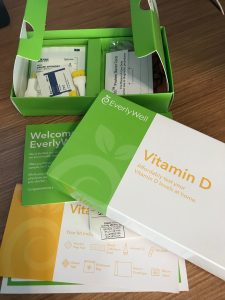A new study suggests a link between cholesterol and Alzheimer’s disease…that excessive cholesterol could aid in the formation fo beta-amyloid plaques in the brain. It doesn’t seem like this is the only factor behind Alzheimer’s, but it’s yet another reason to follow a healthy diet. Read more at Care2.
How coffee helps protect the heart
Coffee’s health benefits are nothing new (a topic I cover occasionally at Coffeeopolis.com). There’s a steady stream of scientific studies that generally support that conclusion…which I guess is not surprising, I mean, considering coffee’s popularity, I imagine there’s no shortage of scientists eager to study the topic more! But I digress. A team in Germany has made progress in understanding exactly how coffee helps your heart. More specifically, it’s the caffeine that in this case is responsible…it triggers the action of a protein called p27, which basically helps cell repair processes in the heart. However, the data comes from studies done with mice…whether it works the same in humans is less certain. Read more at this link if you’re curious (or the published paper in the journal PLOS)
Do you want to know the best news? The optimal caffeine intake to achieve these benefits is about for or five cups of coffee a day! So, drink up!
EverlyWell – hack your heath
 I’m not happy if I don’t feel like my body is operating at peak efficiency…yet sometimes it’s hard to figure out why things seem off. If you have the time and patience, scheduling a trip to the doctor is always the best option. For a quick peek into the systems of your body, there are at-home tests you can do to test an amazing number of things. The company I’ve been trying out is EverlyWell, and they offer a really large variety of tests, depending on what conditions you’re trying to debug:
I’m not happy if I don’t feel like my body is operating at peak efficiency…yet sometimes it’s hard to figure out why things seem off. If you have the time and patience, scheduling a trip to the doctor is always the best option. For a quick peek into the systems of your body, there are at-home tests you can do to test an amazing number of things. The company I’ve been trying out is EverlyWell, and they offer a really large variety of tests, depending on what conditions you’re trying to debug:
- Food sensitivity test
- Food sensitivity+
- Postmenopause test
- Women’s fertility test
- Perimenopause test
- Metabolism test
- Metabolism+
- Thyroid test
- Testosterone test
- Breast Milk DHA test
- DHA+
- Men’s health test
- Women’s health test
- Vitamin D and Inflammation test
- Vitamin D test
- Cholesterol and lipids test
- Heavy metals test
- Sleep and stress test
- HbA1c test
- STD test
- Ovarian reserve test
You get the idea! These tests aren’t covered by most insurance companies, but depending on what you want to test and why, that may be the case anyway (or if you’re on a high deductible plan, it’s all out of pocket anyway, and you can at least use an HSA or FSA to pay for these). It’s cheap, quick, and easy…well sort of easy…some tests DO require some drops of blood so you need to be able to handle that! Just remember…whatever your results, don’t play internet doctor and go crazy over this…but DO use the results to determine if you need to schedule an appointment with a doctor to investigate further!
Get 10% off if you use this link.
The health benefits of a plant-based diet
In 2017, I switched to a vegetarian diet…I admit I tried full vegan but found the occasional eggs and real cheese to be hard to give up. I’ll work my way towards 100% plant-based eventually…especially as I keep reading about the various health benefits of such a diet! If you’re curious, check out this link at Forks Over Knives, it’s a great, brief summary of the health reasons for choosing a plant-based diet. It’s really pretty crazy when so many ailments in our lives can be addressed with a simple change in diet…and yes, giving up meat really *is* simple! Well except for eggs and cheese. 😉 But if those can at least be minimized, your health will still benefit!
Possible link between sugar consumption and Alzheimer’s Disease
Scientists in England have a found a possible link between excessive sugar consumption, and Alzheimer’s disease. It’s not that sugar is suspected to cause Alzheimer’s, but rather that excess sugar in the body interferes with the body’s normal immune response to a build-up of abnormal proteins in the brian that clump and lead to Alzheimer’s. Not that we really need any more reasons to avoid sugar, right?! But this is yet another…
As I teach my daughter, ‘sugar is poison’. Our bodies can handle it to some degree…life is too short to avoid Girl Scout cookies entirely…but it’s not good to subject our bodies to too much.
